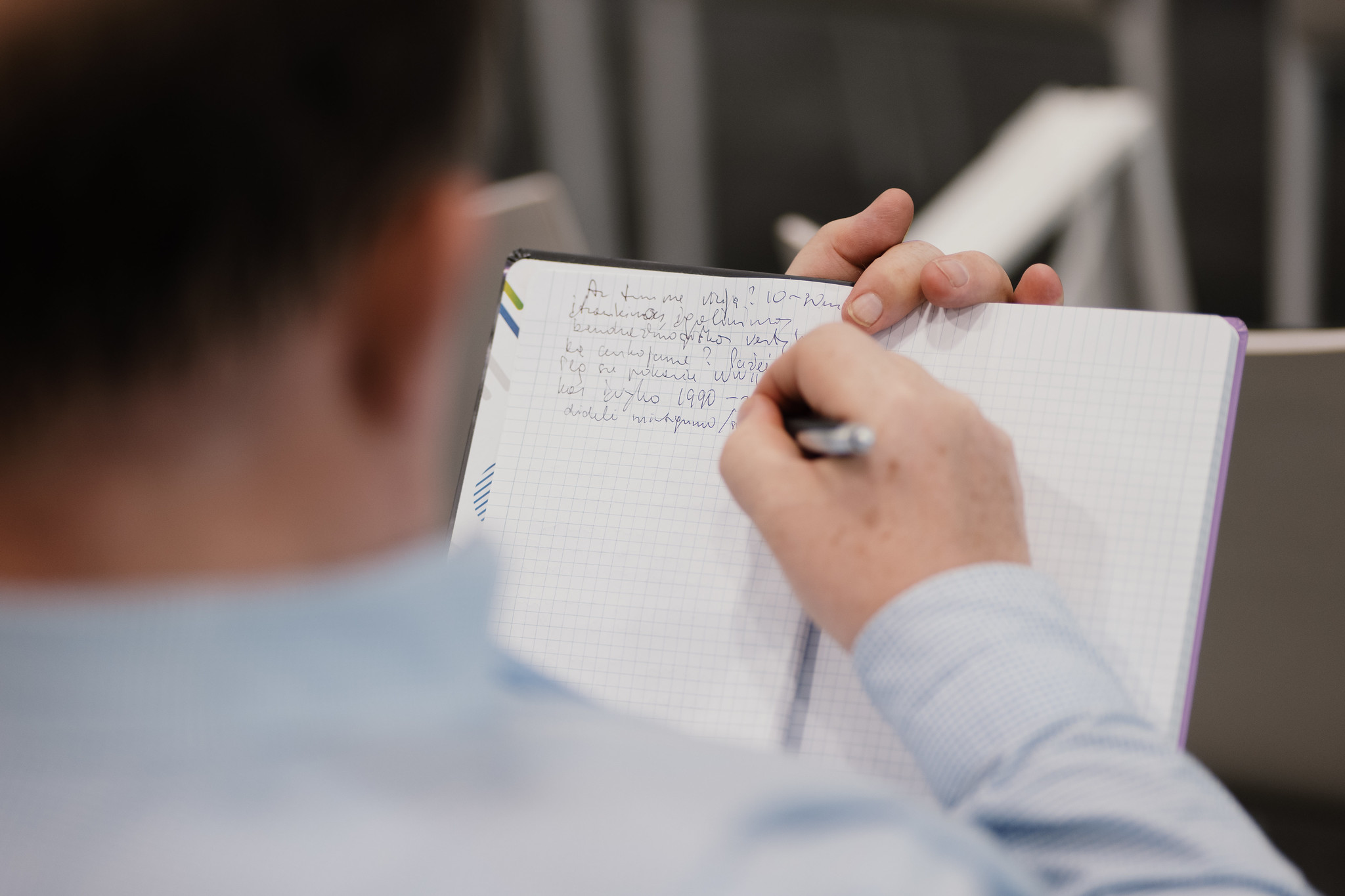Experts Share Insights on Lithuanian Education and the Challenges Ahead up to 2050
 Growing tensions between democratic and autocratic regimes and the state of the education system are the factors whose development will have a determining influence on Lithuania's future in the decades to come. Such was the consensus reached by experts from different fields at the exploratory scenario workshop held in March 2022.
Growing tensions between democratic and autocratic regimes and the state of the education system are the factors whose development will have a determining influence on Lithuania's future in the decades to come. Such was the consensus reached by experts from different fields at the exploratory scenario workshop held in March 2022.
The discussion "Education, Science and Technology: how do we create a future-ready society of creators?", held in the context of the preparation of the State Progress Strategy Lithuania 2050, and attended by researchers from Vilnius University (VU), discussed possible scenarios for Lithuania's future, focusing on topics important for the country's development. The discussion on education and technology in the country is the third event in the series of thematic discussions with experts having already discussed security and society.
Minister identifies areas for discussion
Jurgita Šiugždinienė, the Minister of Education, Science and Sports, pointed out the impact of current events on the future of education and the need to personalise education.
"The pandemic has given us skills we may not have acquired in the next decade. It has also changed the way we live our daily lives and shown us that change can happen much faster than we think," says J. Šiugždinienė.
Another challenge, she said, is climate change, which until recently was considered to be the existential threat for humanity: "But the discussion on the future of education, science and technology meets us today in a different world, where a brutal war is taking place. It is a war in which innocent people die and, depending on the world's decisions, the rules of co-existence of nations may be rewritten."
According to J. Šiugždinienė, it is the task of states and communities to create the best environment for people to express themselves, to mature and not to be afraid of change. Here, the Minister highlighted several areas of discussion. One of them is individualisation.
"We are all very different – we think differently, our needs are different, our abilities are different, and therefore we have to learn in different ways", says the Minister.
She is convinced that the mission of a school is not only to teach, but also to help young people find their way in life. Finally, the Minister highlighted the need to think not in terms of educational levels or institutions, but in terms of ecosystems where people can acquire all the skills they need at any time of their convenience.
The most desirable scenario – consolidated democracy and an educational breakthrough
According to Nerija Putinaitė, Associate Professor at the Institute of International Relations and Political Science at Vilnius University (TSPMI), during the exploratory workshop of Lithuania 2050 there was a lot of discussion about the growing tensions between democratic and autocratic regimes and the state of the education system – the factors whose development will have a determining influence on Lithuania's future in the decades to come.
"What can we do if democracy weakens? How can we strengthen our economic position?", she asked.
At the exploratory workshop in March, it was agreed that education is key. One of the best-case scenarios is that Lithuania no longer has to deal with national security problems and can focus on education and other reforms. "Today we can question to what extent it is realistic that there will be no more national security problems," says Associate Professor Putinaitė.
The workshop also identified educational tensions. The first one is the economisation of education or the broadly understood needs of a well-functioning state. "A balance needs to be achieved between cost-effectiveness, i.e. training high level professionals, and how the education system contributes to a well-functioning state or to increasing the trust in the state," the Associate Professor says.
A related point is the issue between the competence in knowledge and personality competences. "Personality competences are already very important, but they are likely to become even more so in the future. Hence the question is: what should we focus on in education – knowledge or other competences?" – says Associate Professor Putinaitė.
Other issues related to threats to education were also highlighted: top competences versus equal access to education, individual learning versus learning in formal institutions and the compatibility of the two, keeping up-to-date with the world's latest innovations in educational methods and content.
However, according to Associate Professor Putinaitė, the most desirable scenario remains the same – consolidated democracy and a breakthrough in education. In this scenario, the prevailing dilemmas would be resolved: national security threats would cease to exist, the focus would turn to the empowerment of education, quality education would be available to all, and a new generation would grow up ambitious and empowered, with the highest level of competences. In turn, Lithuania becomes an attractive place to live for all as a strong and sustainable democracy and economy.
"This scenario includes a very simple yet complex element – a qualitative change in the state. The question then arises as to how to "program" a qualitative change in society and the state, even if the challenges to national security, democracy and the economy remain unabated", asks the Associate Professor.
The State Progress Strategy Lithuania 2050 is being prepared using an innovative Foresight method. The planned duration for the implementation of the strategy is more than twenty years (from 2024 until 2050). The legal draft is to be submitted to the Seimas by 10 March 2023. The Lithuania 2050 Strategy is being developed by the Office of the Government in collaboration with the Seimas’ Committee for the Future, STRATA and Vilnius University.